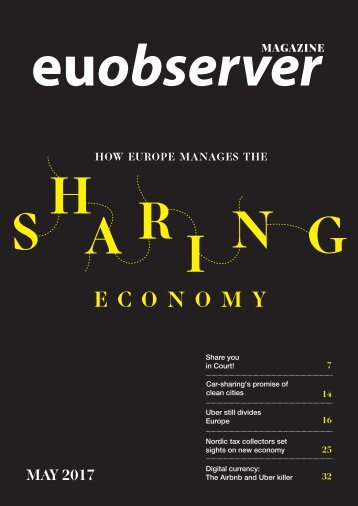Health in a post-pandemic EU
- Text
- Vaccines
- Health
- European
- Pandemic
- Diseases
- Healthcare
- Obesity
- Mrna
- Pharmaceutical
- Medicines
HEALTH IN A
HEALTH IN A POST-PANDEMIC EU Appetite-suppressing drugs have generated popular excitement, and endless coverage in mainstream media, but potential side effects and addiction issues mean the drug revolution is not happening without concerns. A ‘cure’ for obesity Following the success of diabetes drugs for weight loss, concerns remain about long-term effects – both for health and society. By MIE HOEJRIS DAHL Two months after Danish pharmaceutical company Novo Nordisk launched Wegovy, its blockbuster weight-loss drug, in Europe, demand has exploded. Overweight Germans are desperate to get a hold of the drug, hoping to lose weight. 48-year-old Philipp Lang from Bad Homburg, near Frankfurt in Germany is one of them. Lang has a background in investment banking and IT. He runs a family business, acting as the managing director of an illumination company in Friedrichsdorf while running restaurants in Frankfurt on the side. Lang is a busy man. From his car, he tells EUobserver about his weight journey. Like many, Lang gained weight during the COVID pandemic. His weight peaked at 120 kilograms. In August 2022, he was hospitalised for psoriasis spreading out as arthritis and went through cortisone treatment, a steroid hormone that relieves pain and inflammation. He started taking Ozempic, a diabetes drug commonly used to obtain weightloss, to prevent weight gain as a result of the cortisone treatment. When Wegovy (which contains the same active ingredient, semaglutide, in a higher concentration) was made available in Germany, he immediately took it. “It worked well,” Lang says. Without implementing lifestyle changes, he quickly shed weight and is now at 105 kilograms. Ozempic and Wegovy mimic a hormone called glucagon-like peptide-1 which targets parts of the brain that regulate appetite. The hormone slows down the rate of ‘gastric emptying’, which means people feel fuller and have less desire to eat. It also encourages the body to break down fat. In 2018, Ozempic was approved in the EU for type 2 diabetes, but not for weightloss. By the end of 2021, the European Medicines Agency (EMA) approved the drug in a higher concentration, under the brand name Wegovy, for chronic weight management in the EU. The share price of Novo Nordisk, the company behind the popular weightloss drugs, surged by almost 120 percent since the debut of Wegovy on the US market in June 2021, making it Europe’s second-most valued, listed company and transforming the economy of its home nation, Denmark. Rival obesity drugs are already under way. Mounjaru, a diabetes drug produced by Eli Lilly, an American drugmaker, was approved by the US Food and Drug Administration in May for diabetes and is expected to expand to weight loss soon. Novo Nordisk is currently advancing its next-generation offerings with high hopes for CagriSema, another obesity drug, currently in phase 3 development. Amgen, AstraZeneca, Pfizer and smaller biotech companies are racing to develop new drugs as well. Appetite-suppressing drugs have generated popular excitement, and endless coverage in mainstream media, but potential side effects and addiction issues mean the drug revolution is not happening without concerns. A growing problem Globally, obesity rates have almost tripled since 1975. The COVID pandemic compounded this problem. A 2022 World Health Organisation report estimates that 59 percent of adults in the European region are overweight or obese. Overweight can have devastating effects, causing more than 1.2 million deaths across the European continent every year, according to WHO estimates. Being overweight can lead to heart disease, stroke, diabetes, fatty liver, increased risk of cancer, knee pain and a myriad of other health issues. 7
- Page 1 and 2: MAGAZINE 02 23 A ‘cure’ for obe
- Page 4: TABLE OF CONTENTS HEALTH IN A POST-
- Page 10: Who cares? Europe’s future health
- Page 14: WHO CARES? This is a human rights i
- Page 18: IN SICKNESS AND IN HEALTH HEALTH IN
- Page 22: HEALTH IN A POST-PANDEMIC EU More d
- Page 26: HEALTH IN A POST-PANDEMIC EU “It
- Page 30: HEALTH IN A POST-PANDEMIC EU Stakeh
- Page 34: KEEPING AN EYE ON AI-POWERED DRUGS
- Page 38: HEALTH IN A POST-PANDEMIC EU Prescr
- Page 42: Support truly independent European
Inappropriate
Loading...
Mail this publication
Loading...
Embed
Loading...





















